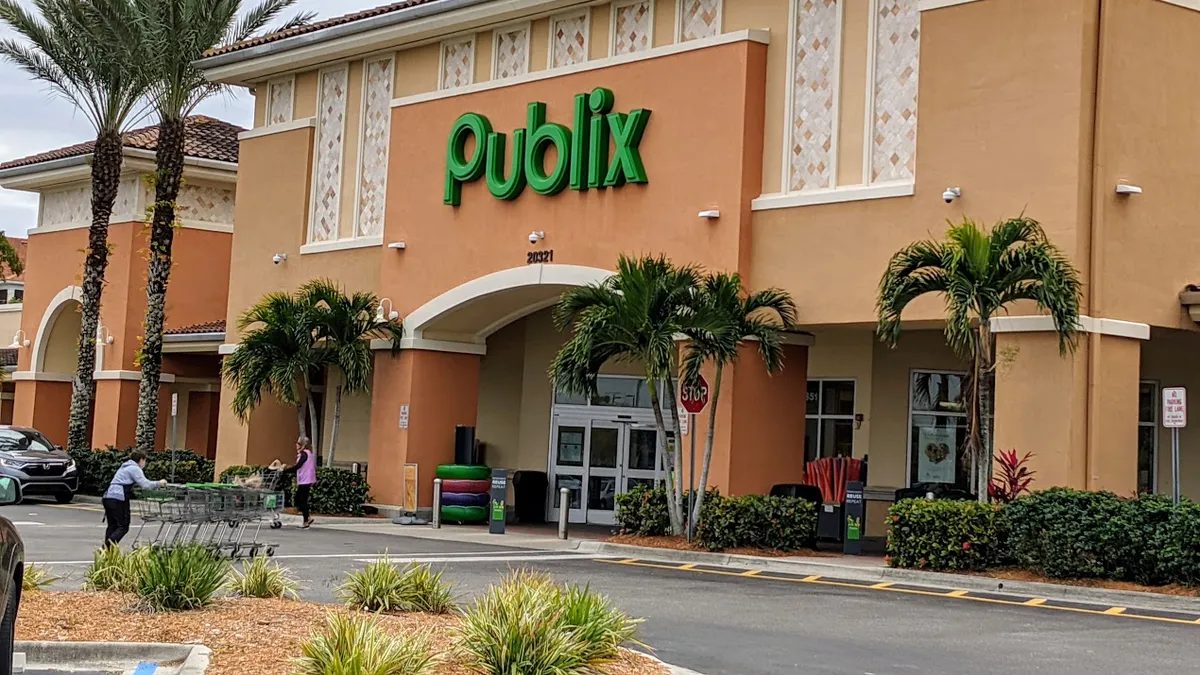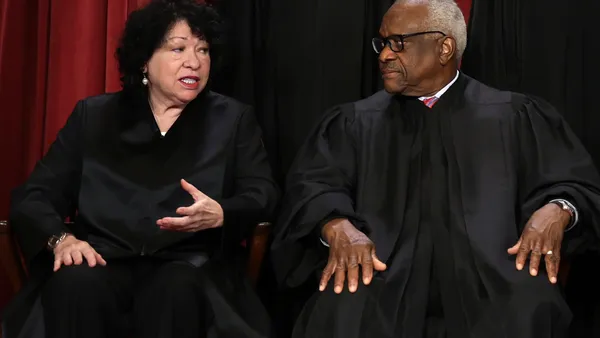Dive Brief:
- Southeastern supermarket chain Publix allegedly failed to pay hourly assistant department managers for work they did during meal breaks and before and after their shifts, according to a proposed collective action filed Oct. 26.
- Three former employees from Tennessee, Georgia and Florida alleged in Roberts, et. al., v. Publix Super Markets, Inc., that before and after they clocked in and out of their shifts, they walked their departments with supervisors and cleaned, organized, stocked shelves and helped customers. They also claimed they were routinely interrupted during their off-the-clock meal breaks to handle work-related texts, phone calls and chat messages from co-workers and supervisors. In addition, they allegedly performed off-the-clock work outside the store, such as answering texts and calls from co-workers and supervisors about scheduling and staffing, according to the lawsuit.
- The plaintiffs, who alleged they were classified as nonexempt from overtime under the Fair Labor Standards Act, sued Publix for violating the FLSA by not paying them for their off-the-clock work and not paying them overtime when that work caused them to work more than 40 hours a week. In a reported statement to WFLA in Tampa, a Publix spokesperson told the TV station that, “As an associate-owned company, we are proud to provide our associates with a comprehensive benefits package — including company ownership — in addition to paying our associates in accordance with the law. We take these claims seriously and will respond appropriately.”
Dive Insight:
Smartphone use at work can be a boon to employers, with the obvious benefit of facilitating communication between supervisors and employees. But, as the Publix lawsuit cautions, smartphone use can also be a double-edged sword, particularly if it’s allowed to bleed into off-the-clock — and arguably compensable — work.
The FLSA requires covered employers to pay nonexempt employees for all hours worked in a workweek, a U.S. Department of Labor guidance explains. “Hours worked” doesn’t just refer to duties the employee is hired to perform while on duty. Rather, it’s more broadly defined as any time the employee “suffers” or is “permitted” to work.
For example, an employer may end up owing an employee for work they “suffered” or it permitted, even if it didn’t request the work, such as when a nonexempt employee voluntarily works after their shift to finish an assigned task or correct errors, the DOL points out.
Pertinent to smartphone use, a blog by Ferber Law a few years ago highlights how easily issues can arise. For instance, suppose a supervisor sends a work-related email to a nonexempt employee while the employee is off-the-clock and away from the job, the blog posits. Is it work if it only takes the employee a minute or two to respond? What if the employee has to regularly respond to work-related texts while off-duty? “It’s not so simple,” the blog notes.
Meal breaks are another potential trap. They usually last 30 minutes and employers aren’t required to pay for the time — so long as employees are completely relieved from their duties during a meal break, an attorney previously explained to HR Dive.
If an hourly supervisor is required to carry their radio and respond to calls during their meal breaks, the supervisor may need to be compensated for the time, the attorney said.
Timekeeping can also raise compliance issues, a former DOL administrator told HR Dive last year. The FLSA requires employers to keep records of the hours an employee works each day and the total hours they work each week. Because work these days is often not standardized, employers must create ways for employees to record their time — and then follow up by paying for the time worked, the administrator said.
The Publix plaintiffs alleged that Publix knew or should have known they were working unpaid time because managers witnessed them doing so and permitted the work. The plaintiffs also claimed Publix failed to record all of their working time and didn’t give them a way to record the work they did outside the store.











